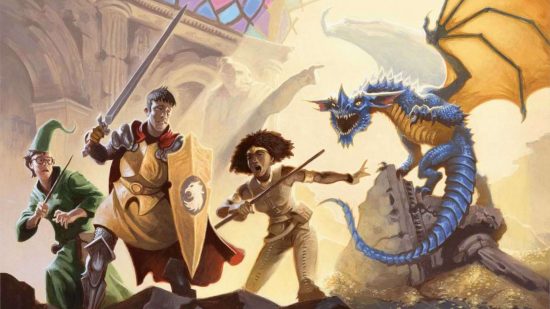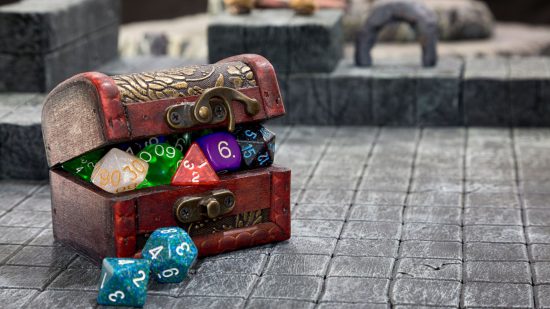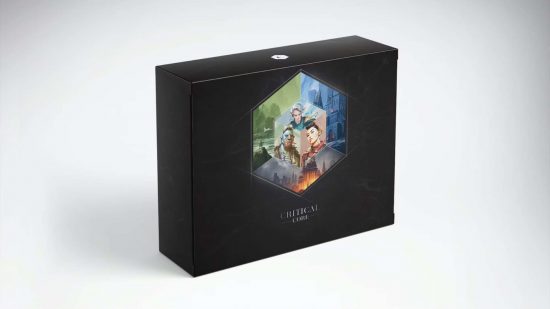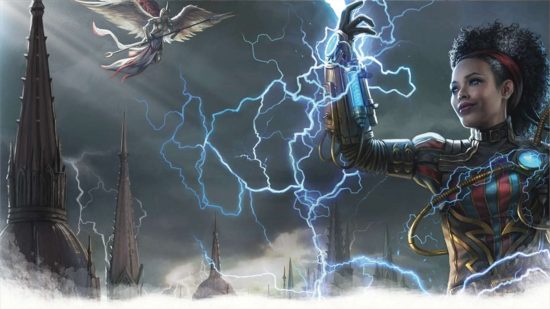Dungeons and Dragons (DnD) isn’t just a game of fantasy and adventure. Over the years, therapists and enthusiasts alike have tapped into the therapeutic potential of role-playing games, and DnD players often find community, solace, and personal growth in their imaginative adventures. But how exactly does DnD therapy work?
Hello adventurers, I’m Dr Joe Stammeijer, your resident Psychiatrist at Wargamer. Today, we’re exploring how Dungeons and Dragons– and all tabletop RPGs – can benefit your mental health.
The wellbeing benefits of roleplaying games
Playing RPGs in any context will help your wellbeing in several ways, and that’s just as true whether the game is part of a planned therapy session, or you’re rolling dice with friends in a DnD one shot.
Creativity
Playing DnD is associated with being more creative. Research shows experienced dungeon crawlers are more creative, have more flexible thinking, and respond to new scenarios with greater originality, than non-players.
Empathy and Perspective
RPG players are more empathetic. This study showed that DnD players exhibited greater empathy than non-players, along with greater abilities to absorb themselves in tasks.

We know the brain circuitry involved in understanding stories overlaps with the wiring for social interaction. The more practice you have in diving into fantasy, the stronger your circuits get for navigating social settings. This empathy extends even to fictional characters, which is why you feel genuine horror when your DM gleefully kills off your favourite NPC.
Moral reasoning
DnD can improve moral development. Research has described DnD as a potential “Moral training ground” and showed how repeat DnD sessions improve moral reasoning through navigating challenging ethical dilemmas. That Chaotic Evil Rogue 5e might well change their ways by the end of your campaign…
How DnD therapy works
While DnD and RPGs are good for you in most settings, they can be even more impactful when used as therapy, either as a tool on their own, or to supplement other therapeutic methods.
It’s an exciting time, with new research and exciting new therapy approaches. Organisations like Game to Grow are exploring these new avenues for therapy, and more appear all the time.
Game to Grow has even created a specifically therapeutic TTRPG called Critical Core, designed to build social confidence and emotional resilience.
Roleplaying is already a kind of therapy.
Roleplaying is therapeutic. Dramatherapy is used throughout the British National Health Service and there’s a strong evidence base for its benefits: from helping us to understand our emotions to providing a safe environment to practice new skills.
So DnD and other RPGs just put a fantasy spin on a tool that has been used in therapy for a very long time! We even use roleplay scenarios in medical school finals and postgraduate tests for psychiatrists.
Roleplaying boosts other therapies
All the positive things that playing DnD can do, which we described earlier, can boost the benefits patients receive from other therapies. When roleplay is added to other psychotherapeutic techniques, it can improve the positive effects they already deliver.
Roleplaying therapy helps with anxiety and social skills
DnD therapy helps social skills, and DnD therapy groups have been set up to help people manage and overcome social anxiety. DnD can, with the right set up, create a safe environment to explore behaviors or skills you struggle with, but want to explore. Acting as that super confident Bard 5e can help develop the same attitude outside of the game room!

What’s next for DnD therapy?
We know about some benefits of DnD, and we know roleplay is a great therapy tool. What’s next? If we want to explore what else DnD can do for our mental health, researchers and therapists have work to do.
Artificers Stand by – Research Needed!
Older research into RPGs seems to have been influenced by early, negative perceptions of DnD. Early in its existence, there was a moral panic that DnD was a Satanist conspiracy to corrupt the youth. Despite finding no links with negative or stigmatised traits, older research into D&D appears to have been fixated on finding some.
There is always a need for more research. Dedicated interventional studies are particularly important– so if you’re in a position to set up, or participate in, that research, there’s a literature gap waiting for you to jump into!

Inclusivity and Game Design
An approach isn’t therapeutic if it excludes some kinds of people, and we have a way to go before our games are fully inclusive. This ranges from incorporating neurodiversity in our design philosophy, removing racist tropes from worldbuilding and supporting community efforts to rid gaming of sexist gatekeeping.
Therapists need to learn more about DnD
Therapists need specific training. Therapists can be reluctant to use new techniques, in this case that might be because they’re unfamiliar with DnD. This unfamiliarity can even lead professionals to have unfounded beliefs, associating DnD with stigmatised or unhealthy behaviors. Luckily specific training in therapeutic roleplay games already exists, and it’s a field that’s likely to keep growing!
DnD isn’t the only tabletop roleplaying game – though it’s definitely the most famous and widespread, and has attracted the lion’s share of research – so all these benefits may well extend beyond that classic game.

Have you played Critical Core? Has playing D&D helped your mental health? Are you a mental health professional who wants to explore delivering RPG enhanced therapy? Get in touch! I’d love to hear about your experiences or even how you’ve implemented it in your practice.
If you’re a therapist interested in learning more about DnD, you’re in the right place. Wargamer has guides about how to play Dungeons and Dragons for beginners, DnD character creator tools that will help you build a character, and guides to all the DnD classes and DnD races you need to know about. There’s also articles on how DnD offers a safe space for LGBTQ+ people, and community news, like DnD publisher Wizards of the Coast giving 200 DnD sets to schools.




